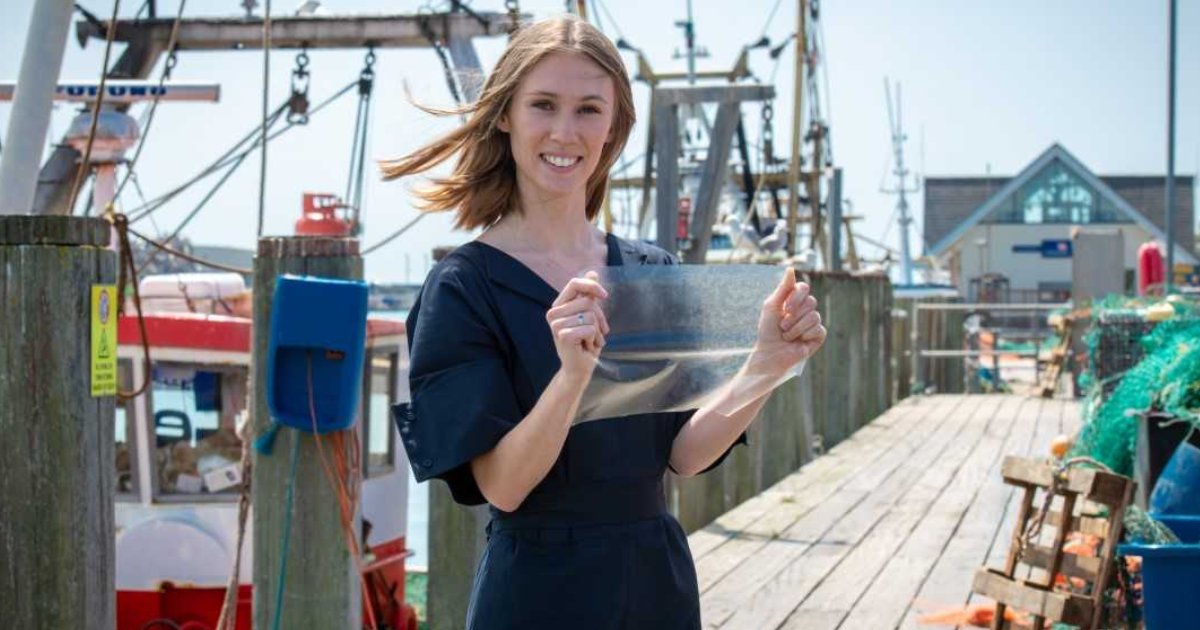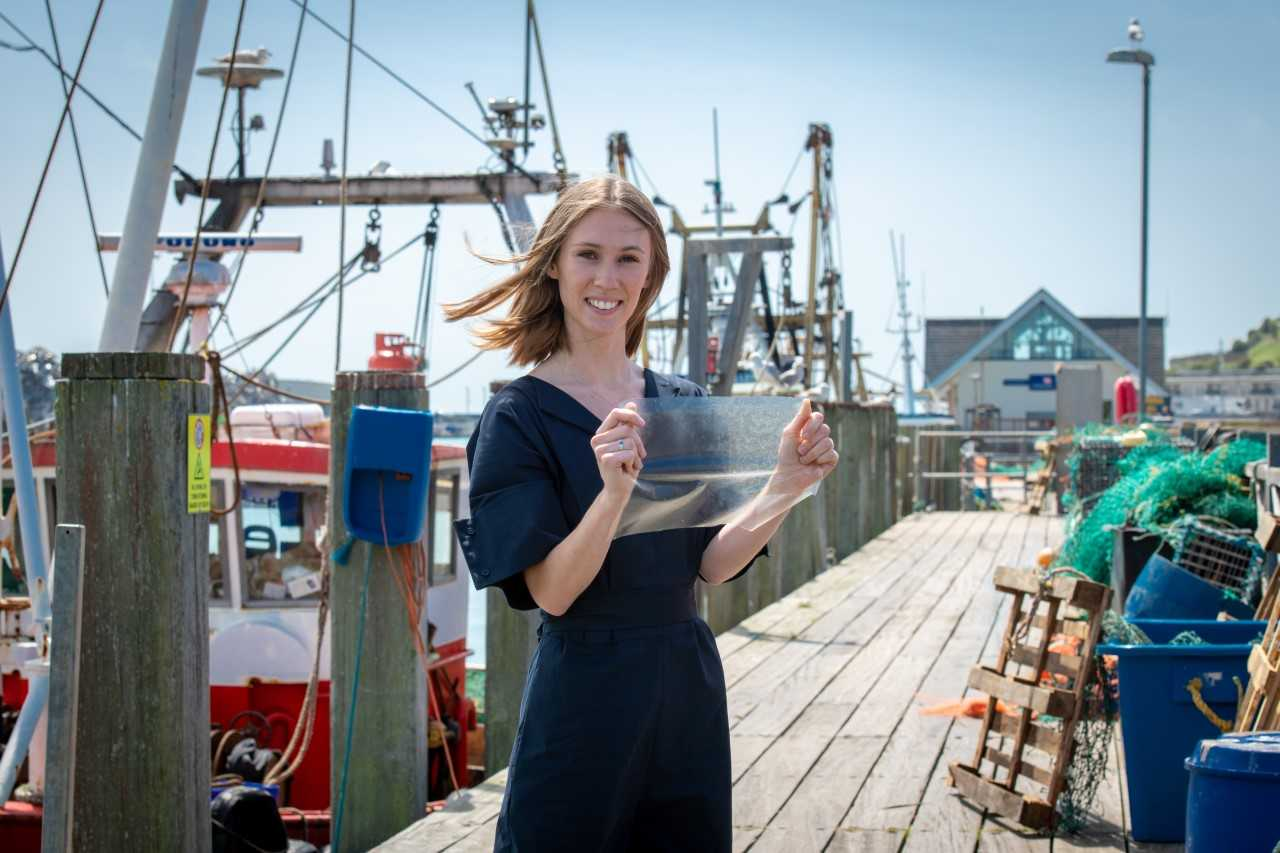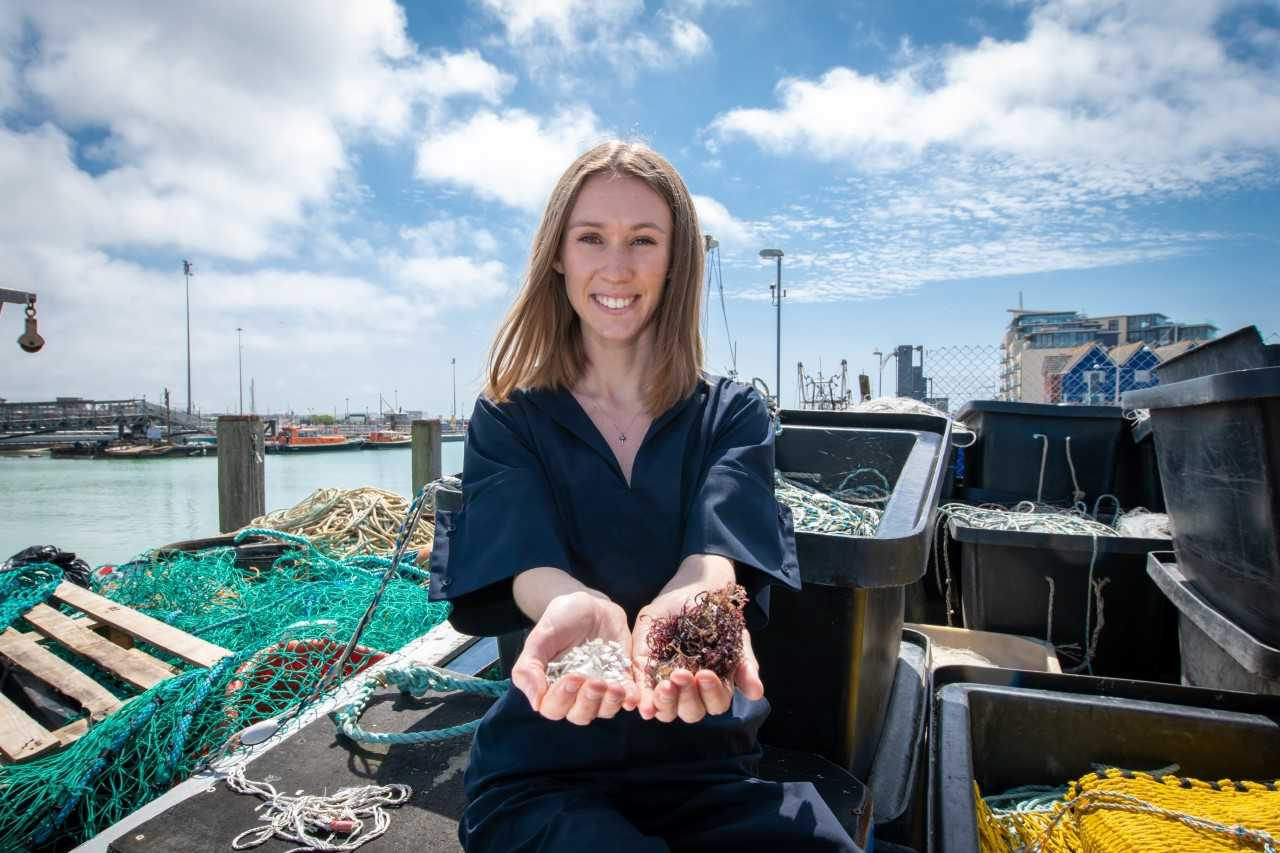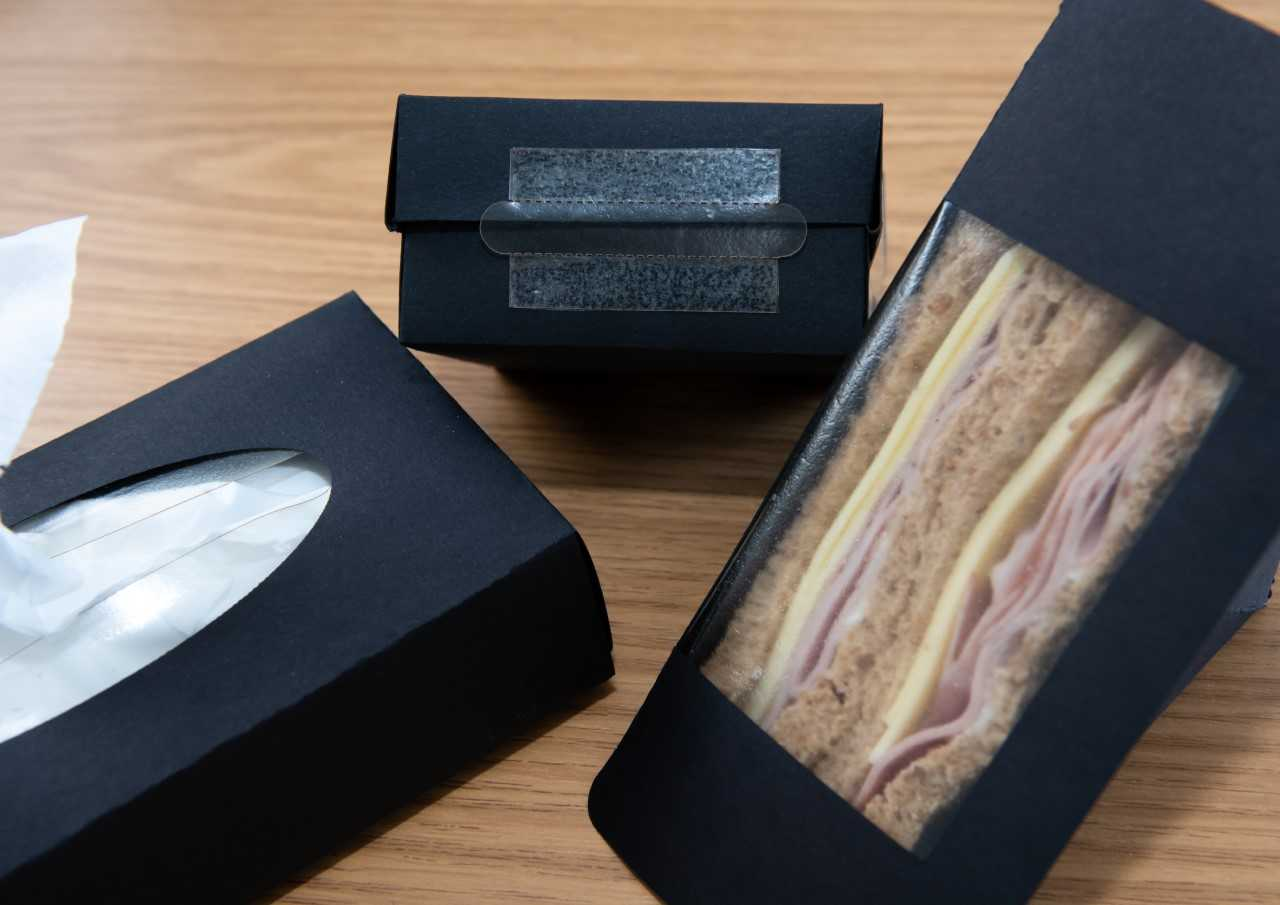We all know how many environmental problems have been created by our use of non-degradable plastic.
The material which was attributed for its long-lasting nature is now posing a threat to the aquatic life and ecosystem due to its very same virtue after millions of tons of plastic end up in our oceans.
Scientists across the globe are looking for sustainable and eco-friendly alternatives to plastic, but it is something easier said than done.
A product design student, however, could have found a solution to the worsening plastic problem.
The young woman has invented a form of biodegradable plastic which could become the solution we’re looking for to limit our plastic pollution.
Lucy Hughes has created a bioplastic from red algae and organic waste of the sustainable fishing industry.
The undergrad student, 23, from Twickenham, England, has named her brilliant invention Marinatex.
Lucy, who is currently enrolled in the University of Sussex, hopes the material could replace the plastic sheets and coverings which are used in tissue boxes and in sandwiches packaging.
Marinatex is compostable and can easily be disposed of by usual methods. And guess what, the biodegradability of the material hasn’t affected the good qualities it must have.
The strength of the new bioplastic is even more than that of common plastic bags, and it will not leach out hazardous toxins as well.
The 23-year-old said: “It makes no sense to me that we are using plastic, an incredibly durable material, for products that have a life-cycle of less than a day.
“And I’m not alone, there is a growing community of bioplastic pioneers that are working towards finding alternatives to our dependency on plastic.
“With Marinatex, we are transforming a waste stream into the main component of a new product.
“By doing so, we have created a consistent, transparent and plastic-like material with a more planet friendly and product appropriate life-cycle for packaging.”
It all started when Lucy visited a sustainable fishing industry and got the chance to witness piles of industrial organic waste lying around.
After a long journey of hard work and determination, she found out that a combination of red algae and fish skin can create a more useful and sustainable plastic.
“Algae bioplastics are becoming more common, but the issue I faced during development was that the sheets I made without the fish waste seemed to revert back into a crinkled seaweed shape,” Lucy said.
“I needed to find a material that would make the formula more consistent. I challenged myself to find a material that was from a local waste stream.
“My initial experiments involved other types of fish waste such as mussel shells and crustacean skeletons before settling on fish waste. The result was a locally sourced sea-based solution.”
According to the young woman, one Atlantic cod could generate as much organic waste as is needed for making 1400 bags of Marinatex. It shows the true potential of her amazing project.
Being in the last year of her undergrad program, Lucy believes Marinatex can hit the markets within one year if she is provided with the right support.
Well, we really hope Lucy’s project proves to be the solution the world is direly in need of!
Recommended Video!
“Pastry Chef Challenged to Make a Life Size Toilet Bowl Cake Which Actually Flushes”





